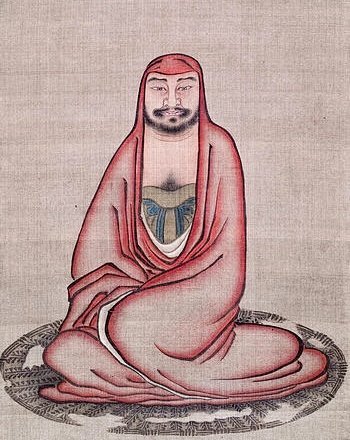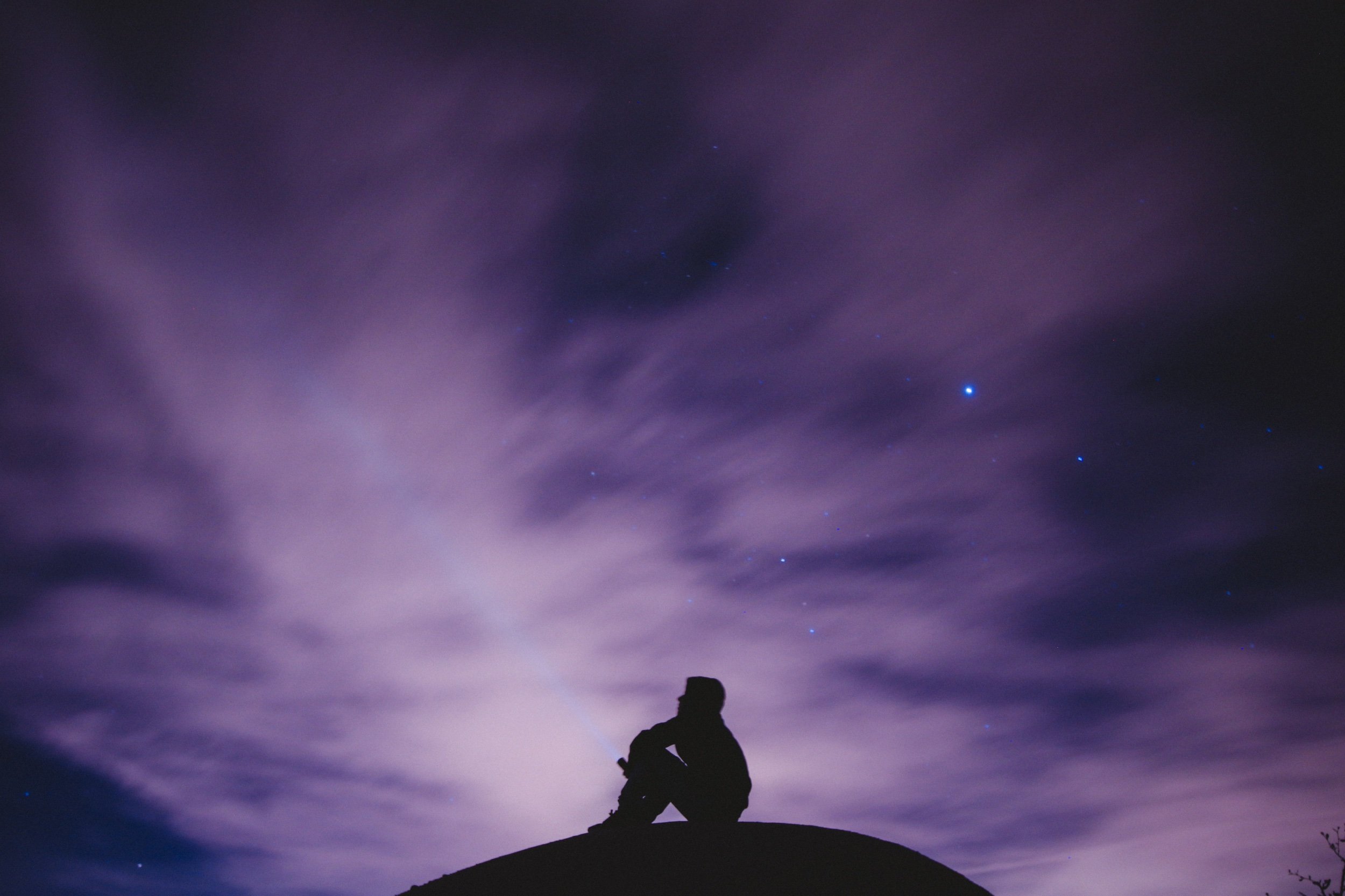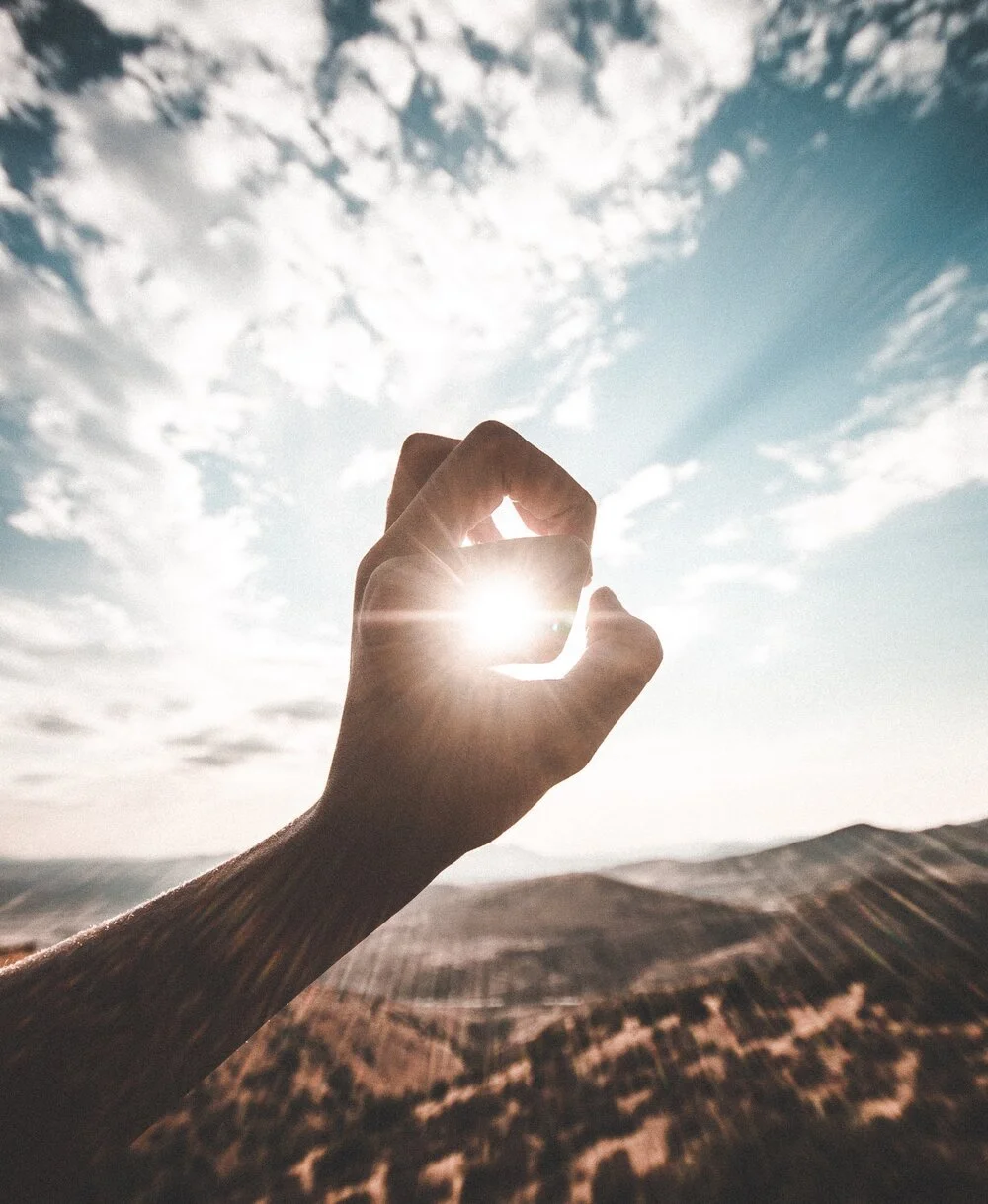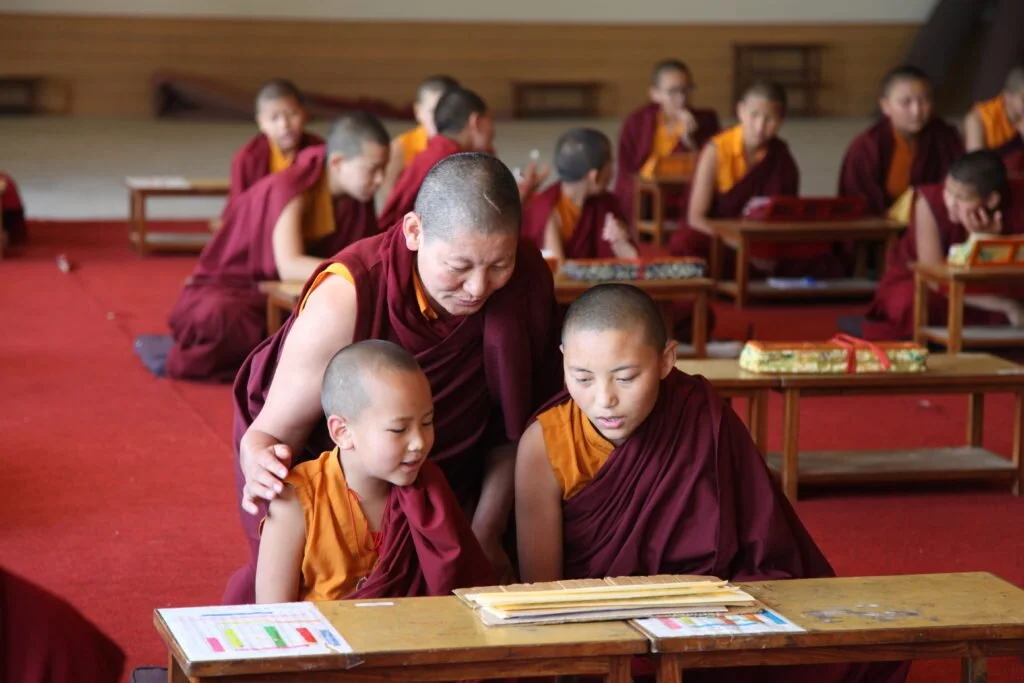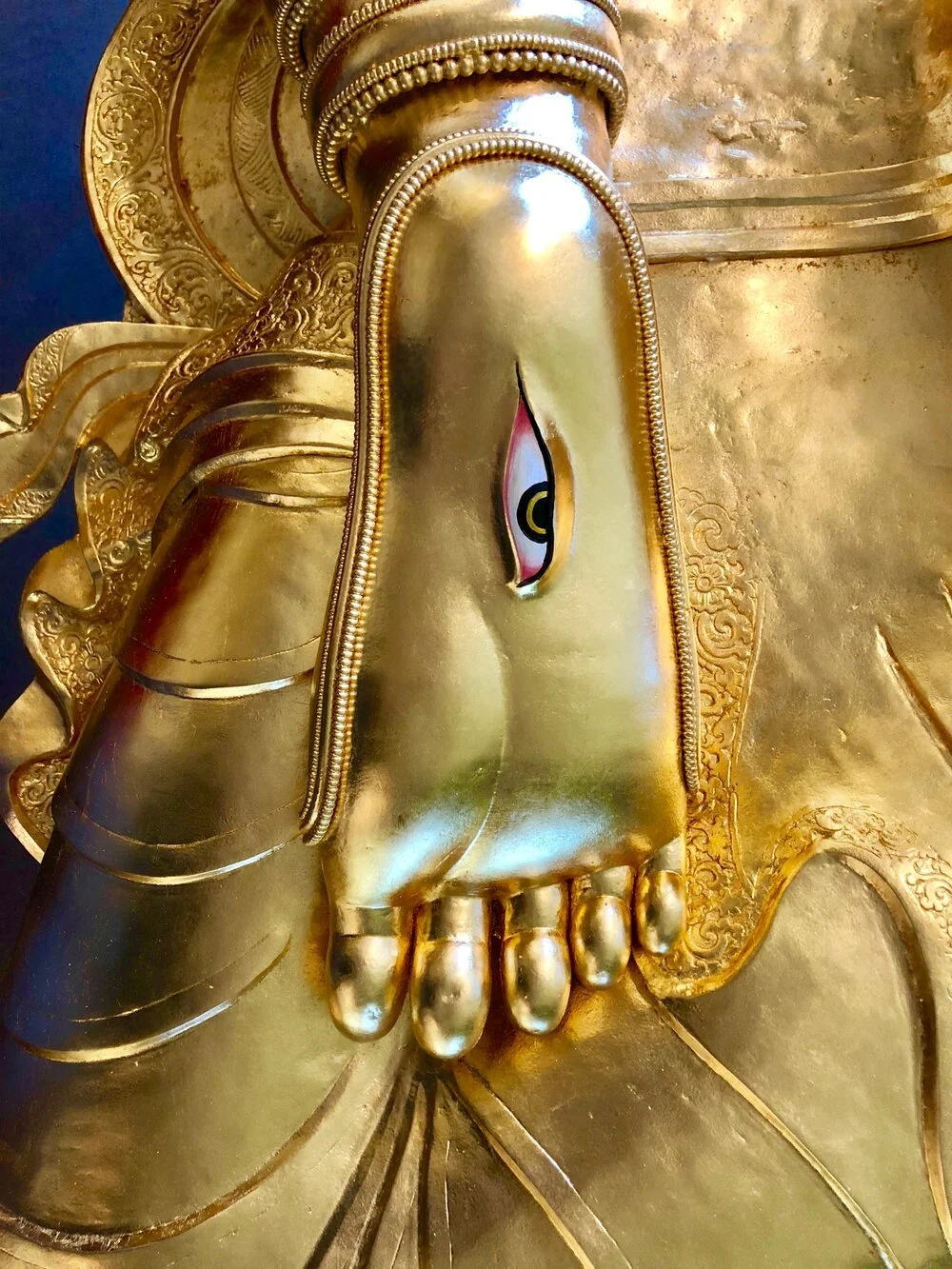Meditation Techniques Are a Dead End…And What I Recommend Instead
I have seen both students I've worked with over the years and friends who meditate get a little bit obsessed over “mastering” a meditation technique and or finding the “best” one to practice. Because of this I’ve come to refer to meditation techniques (in and of themselves), as dead ends. I realize that this is a controversial statement, and so I ask for your generosity in hearing me out on my full perspective.
The Art of Surrender: A Buddhist Approach To Letting Go of Struggle
In traditional Buddhism, the word surrender isn't used much. However, it is embodied within a variety of practices and ways of relating to our emotions, thoughts, and lives through meditation. Surrender can mean a lot of different things depending on the context or how we take it personally. So, I want to share how I use the practice of surrender within my meditation and Dharma practice.
Navigating the Monastic Life: Challenges and Rewards in the Buddhist Tradition
Some of you who are newer to me or my work might not know that I was a Buddhist monk for a pretty sizable chunk of my life. Once people find out, I often get asked a lot of questions about what it was like, as it's something so foreign in our modern culture. So few of us outside of Asian Buddhist cultures get to experience monasticism. There's also a lot of “Hollywood” ideas of what a Buddhist monk is and I didn't find too many of those to be true.
Buddhist Wisdom For Nurturing Healthy Relationships
Relationships are everything, and we are always in relationship to something - whether it be our internal experiences of thoughts and emotions, our bodies, or those around us. In this post, I will share a few key ideas on nurturing healthy relationships that have been transformational for me.
We Are Not Fundamentally Screwed Up
When I first started studying Buddhism I came across the concept of Buddha nature, the idea that we are not fundamentally screwed up. Now, that's definitely not a traditional way to represent it or talk about it, but that's the way I like to introduce it in my Dharma talks.
When Everything Feels Like a Problem That Needs To Be Solved
In a recent mentoring session I was talking with a mentee about their struggles with overwhelm and anxiety. We were digging into some inquiry work around the role that their lifestyle choices, behaviors, and relationship to meditation may be playing.
“How Do I Get Rid of My Thoughts When I Meditate?”
When I was a Buddhist monk I would often get this question as I was passing through an airport, ordering a coffee (yes, monks like coffee too), or standing in line for something.
Should I Meditate With My Eyes Open or Closed?
Within the various kinds of Buddhism and methods of meditation throughout the world we're going to find a variety of recommendations for either closing or opening the eyes during meditation.
Meditation For Healing Anxiety
I've struggled with chronic anxiety as far as I can remember. Meditation has helped me immensely to work more skillfully with the anxiety I experience on a daily basis, and even to find some actual healing and transformation.
Finding Joy In the Process of Meditation
A more process-oriented approach to meditation can help us to deal more skillfully with resistance, stagnation, consistency, and can even bring more joy (yup!) in practice.
Developing a More Consistent Meditation Practice
The number one struggle I hear from both students I work with and one-to-one mentees is how to keep a consistent daily meditation practice. I hear this so much that I finally decided to devote some content to it.
How To Practice Meditative Awareness
Within Tibetan Buddhism we practice meditation by cultivating awareness and familiarizing the mind with beneficial qualities like loving kindness, compassion, meditative awareness, and eventually insight into the nature of reality.
What Is Meditation?
There are a lot of opinions and approaches to what meditation is. For the last 22 years I've been studying and practicing in the lineages of Tibetan Buddhism, and will share some ideas on what meditation is from those perspectives here.
Process Oriented Vs. Result Driven Meditation
I find result driven meditation to be a dream killer, as when I’m focused on results, my mind has already created a limiting version of how I “should” feel after meditation, or what experiencing the Buddhist path “should” look like.
Can Compassion Be Harmful?
Compassion is a hot topic these days. What was once relegated to conversations between saints and sadhus is now promoted in various secular arenas, including mindfulness meditation. Compassion has also been a large part of the growing conversations around racial and social justice in the United States and beyond.
Body Enlightenment
“In the 21st– century, the subject of healing the subtle body is crucial. I sometimes say that for western Dharma practitioners, “body enlightenment” is more important than the enlightenment of the mind.” ~ Tsoknyi Rinpoche
Meditation Can Be More Than a Solution
Modern meditation is often presented as a solution to our mental and emotional problems. Although there is some merit to this claim, as seen in countless individual meditators and a growing body of scientific studies, meditation can be much more than just a temporary solution to feeling stressed out.
On Meditation and Mindfulness in Everyday Life
The more I practice the Dharma and study Buddhism, it’s very obvious that, yes, we have methods and all that, but when we de-instrumentalize them, actually what’s happening is we’re just pointing out the capacity of our mind. And it’s so beautiful. And we all have this. We all have this potential. And again, when that connects in with compassion and interdependence and interconnectedness, it’s a way we can love each from a much broader place.
What Is Sangha?
“A sangha is a community of friends practicing the dharma together in order to bring about and to maintain awareness. The essence of a sangha is awareness, understanding, acceptance, harmony and love. When you do not see these in a community, it is not a true sangha, and you should have the courage to say so. But when you find these elements are present in a community, you know that you have the happiness and fortune of being in a real sangha.”
Reclaiming the Sacred
Sacredness is all around us. When there's truth, when there's something profound, we can sense it. Though we can feel it, sacredness can also be something that we put outside of ourselves, that is then special and worthy of our time and attention. Yet even this is just another expression of our Buddhanature as we externalize our light, our sacredness, to see.












